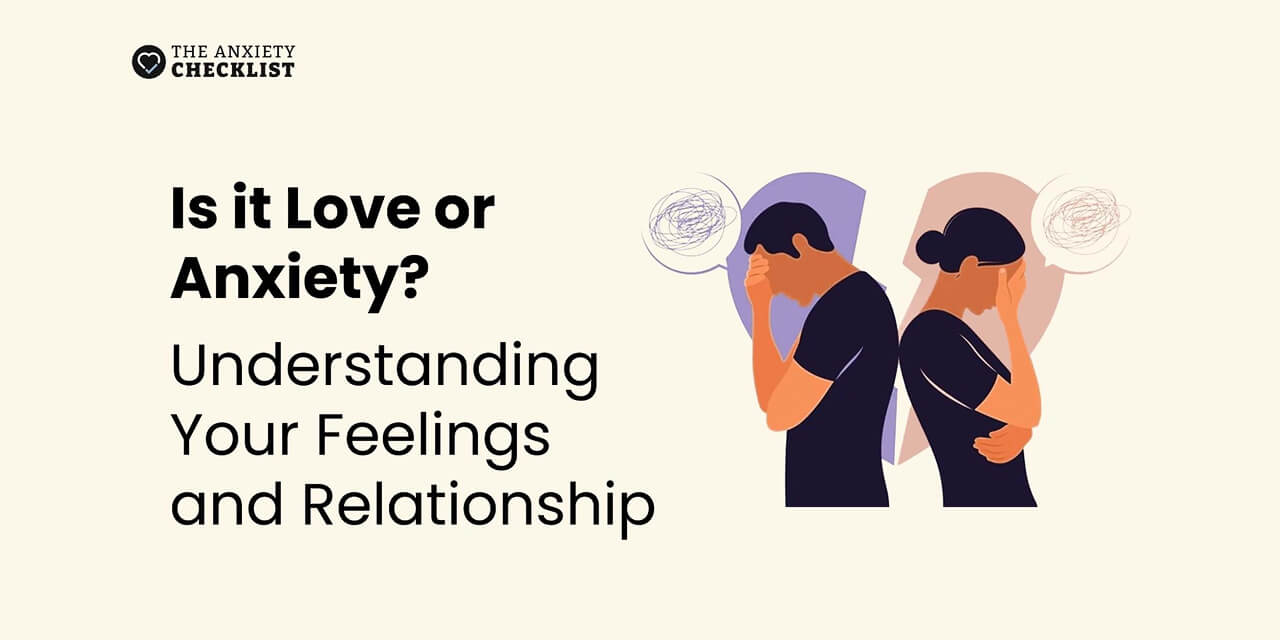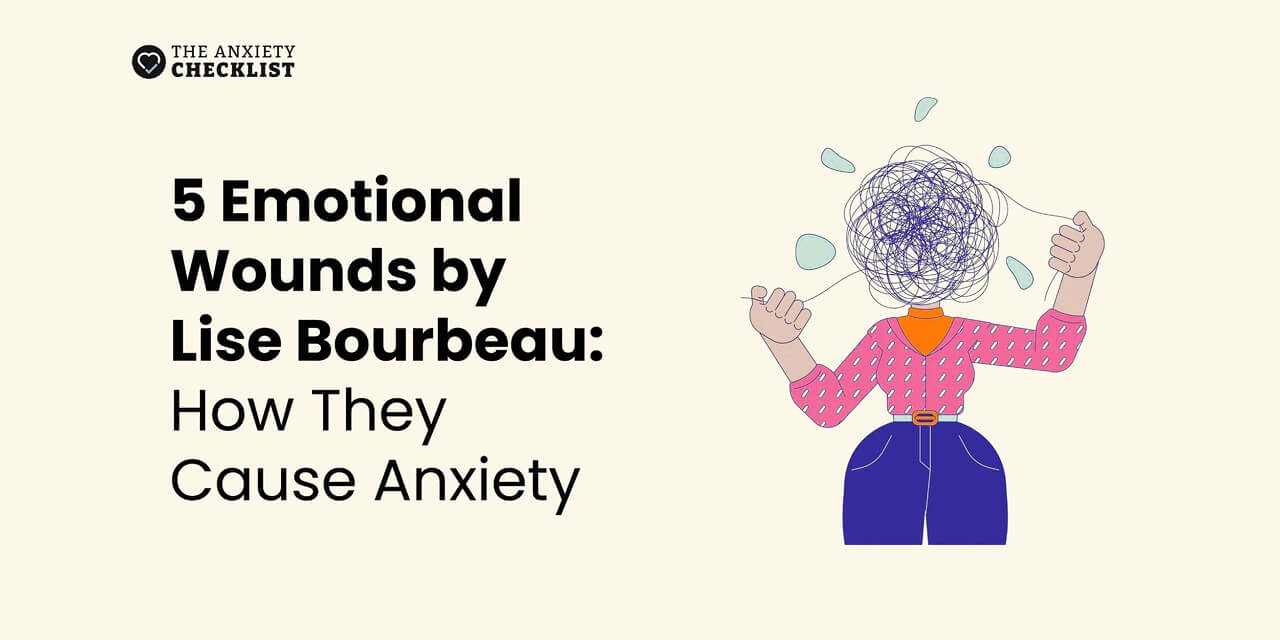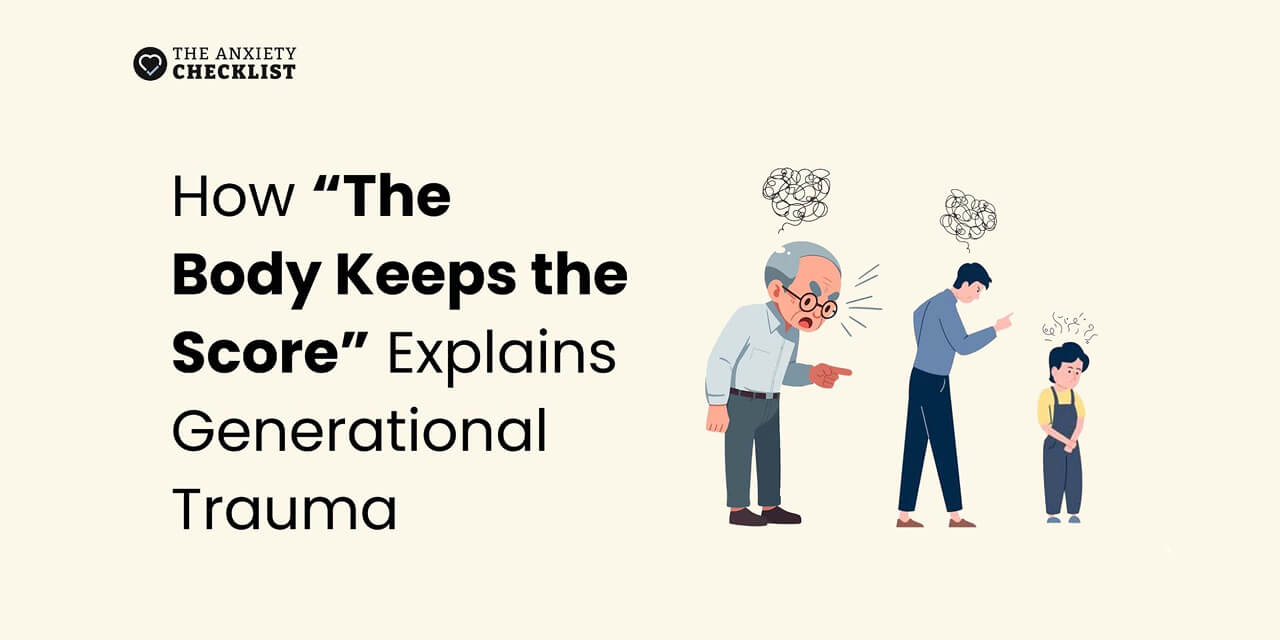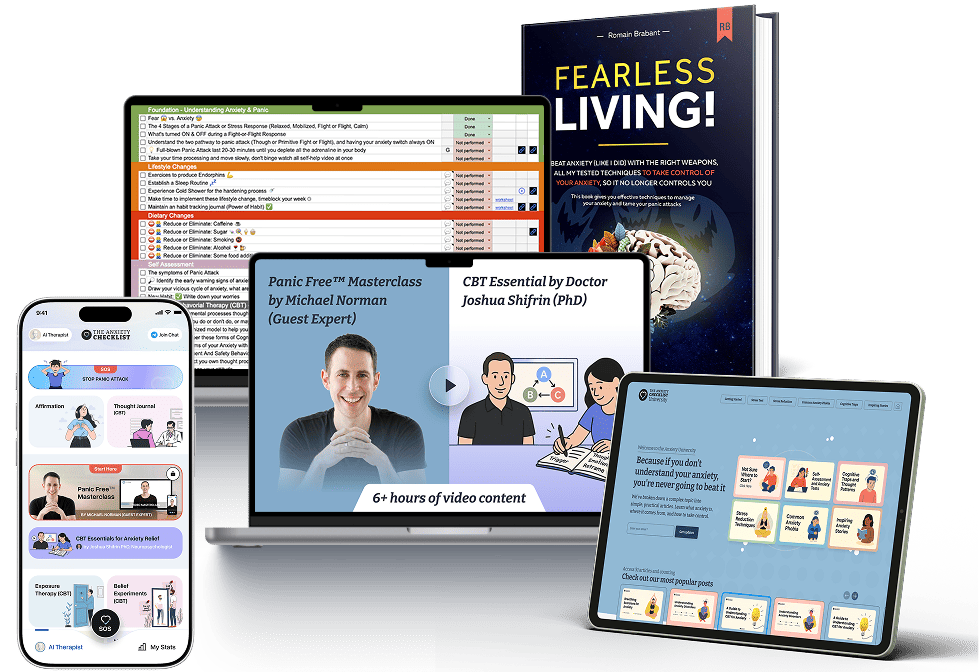When anxiety hits, do you know what to do next?
Learn how to calm your body, interrupt fear loops, and regain control step by step.
What Relationship Anxiety Can Look Like
Let’s Talk About the Real Triggers
When you’re anxious in a relationship, it may be hard to pin point what’s wrong. But there are always causes that lead to anxiety.
Some common causes that might be behind your relationship anxiety:
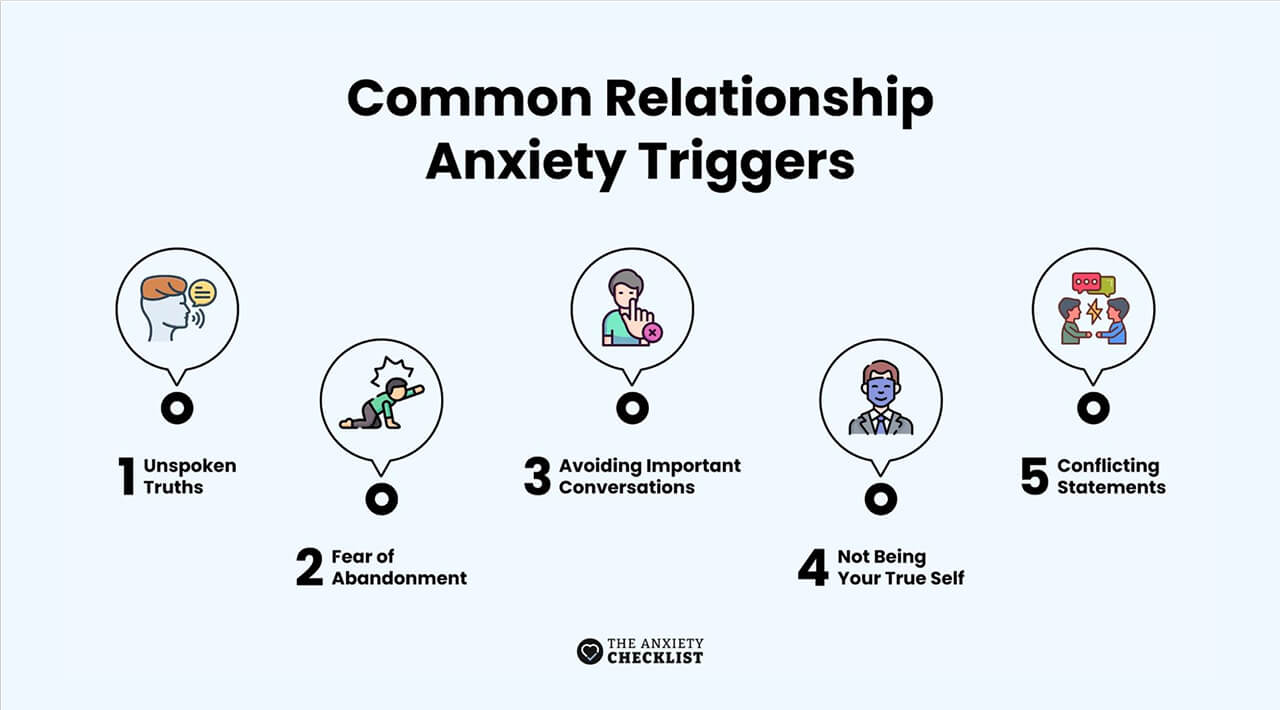
1. Unspoken Truths
2. Fear of Abandonment
Do you constantly worry your partner will leave? Does the thought of being on your own trigger autophobia?
This fear often stems from past experiences where someone important left you or wasn't there when you needed them.
Signs of abandonment fear include:
3. Avoiding Important Conversations
Some topics feel too scary to discuss.
You might worry that bringing them up could make your partner see you differently or even push them away completely.
Deep down, there's that fear: 'What if this conversation ends us?'
So instead of talking, you stay silent about things like:
4. Not Being Your True Self
Many people with relationship anxiety edit themselves to fit what they think their partner wants. You might:
5. Conflicting Statements
Sometimes your relationship anxiety comes from holding two opposing things at the same time. You might:
How to Tell the Difference: Love or Anxiety?
Figuring out if what you're feeling is love or anxiety can be tough. Here are some ways to tell them apart and listen to what your body and mind are trying to tell you.
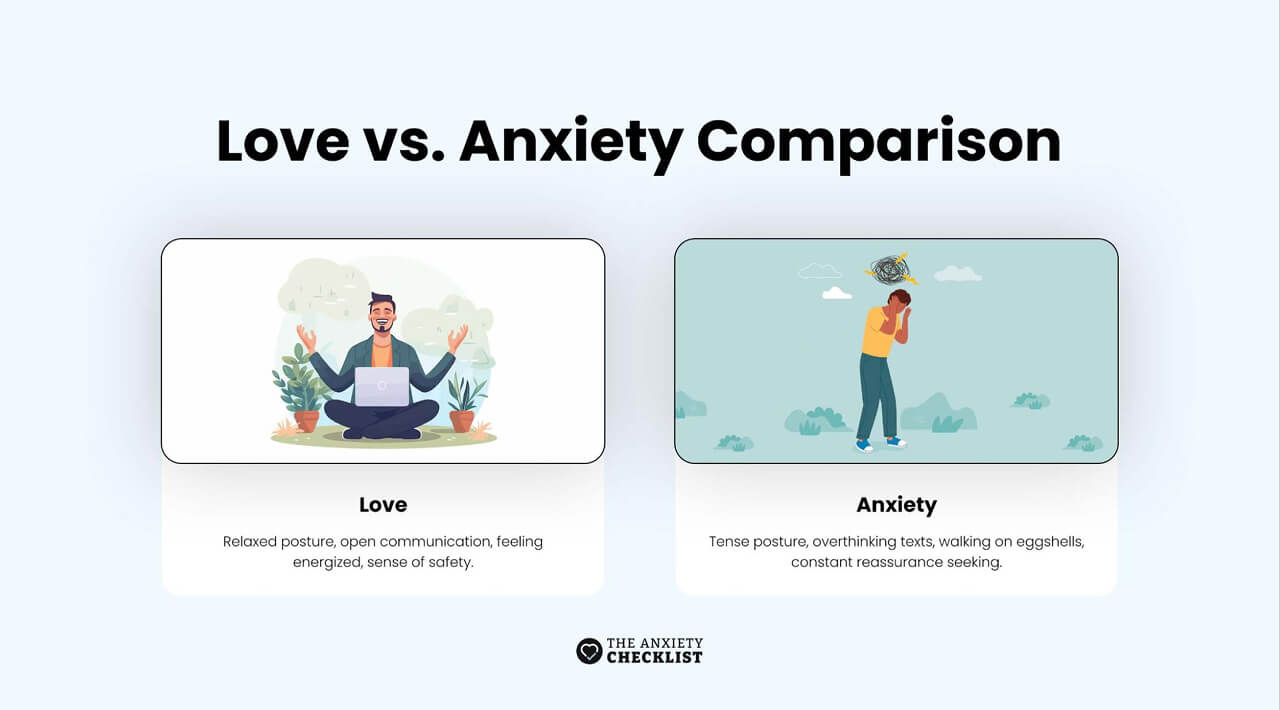
Physical Signs vs. Emotional Connection
Love typically feels warm and calming in your body. You might feel:
Anxiety, on the other hand, feels very different in your body:
Your body often knows the truth before your mind does.
Pay attention to how your body feels when you're with your partner or when you think about them.
To sort out your feelings, ask yourself:
If you answered yes to the first two questions and no to the others, your relationship is likely healthy.
If your answers were the opposite, your anxiety might be trying to tell you something important.
Your Anxiety Isn’t Against You — It’s Trying to Protect You
What if anxiety isn’t the enemy?
What if it’s the messenger—trying to protect your inner peace?
Anxiety says:
When you stop treating anxiety like a symptom to fix and start listening to it as a signal to decode, you start healing.
The Impact of Relationship Anxiety on Both Partners
Relationship anxiety doesn't just affect you—it changes how both you and your partner experience your relationship.
Understanding these effects can help you both respond with more care and patience.
How It Affects You
How It Affects Your Partner
The Cycle That Develops
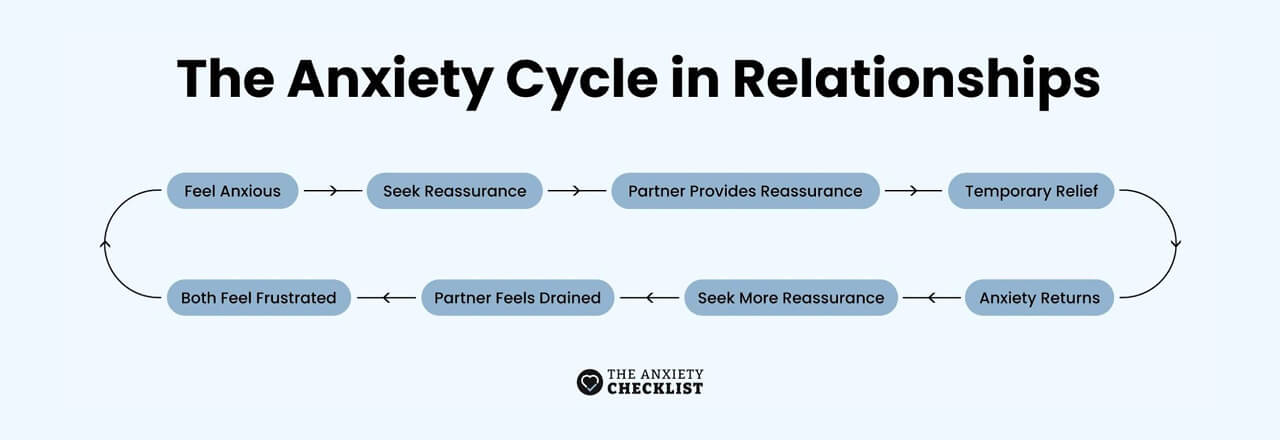
Practical Tools for Managing Relationship Anxiety
When relationship anxiety takes hold, you need real tools to help you feel better. Here are some approaches that work:
1. CBT Techniques
2. Communication Strategies
3. Self-Regulation
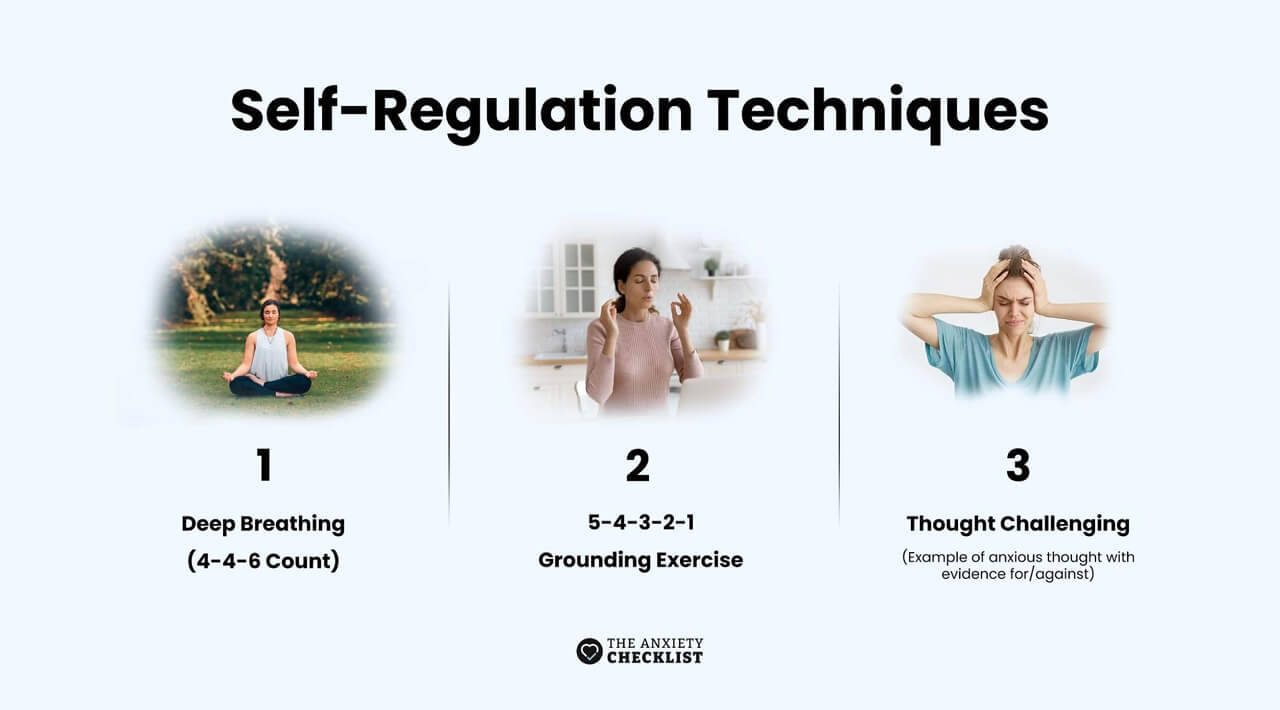
How Couple Therapy Can Help
If you're in a relationship that feels worth fighting for—but you're both stuck—couple therapy can change everything. Here's what it can bring:
Exercises to Do Solo to Find Clarity
Whether your partner is open to work or not, you can start healing today with these solo exercises:
1. "Two Truths" Journal Prompt
Write freely, without judgment:
2. Inner Child Letter
3. Needs Inventory
4. Body Check-In
Every time you feel anxious with your partner, pause and ask:
Frequently Asked Questions
The Bottom Line: Love Shouldn't Hurt this Much
Need Support?
If you are in a crisis or any other person may be in danger - don't use this site. These resources can provide you with immediate help.


